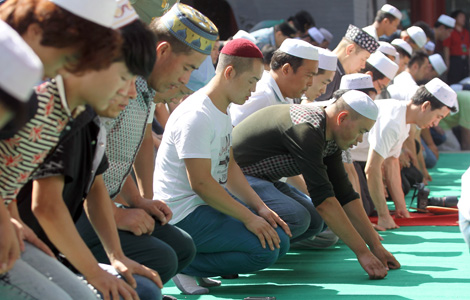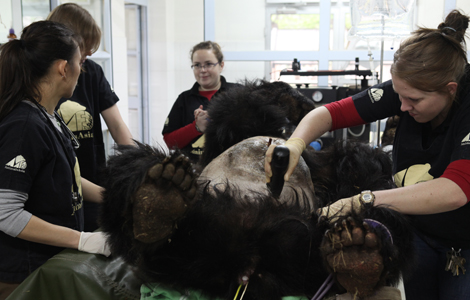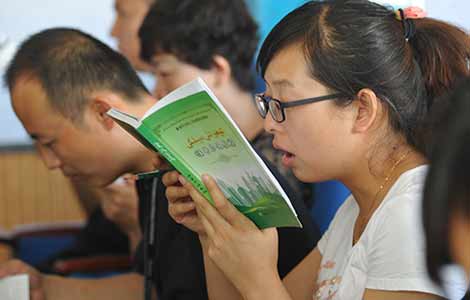Many Americans have no friends of another race: Poll
Updated: 2013-08-08 20:16
(Agencies)
|
||||||||
As a group, Pacific states - including California, the most populous in the nation - are the most diverse when it comes to love and friendship. By contrast, the South has the lowest percentage of people with more than five acquaintances from races that don't reflect their own.
Some of this is down to precedent. "This country has a pretty long history of restriction on inter-racial contact and for whites and blacks, even though it's in the past, there are still echoes of this," said Ann Morning, an associate professor in the department of sociology at New York University.
"Hispanics and Asian Americans have traditionally had less strict lines about integrating."
In his comments two weeks ago, President Obama expressed optimism about the future, saying his daughters' experiences show younger generations have fewer issues with race. "It doesn't mean we're in a post-racial society. It doesn't mean that racism is eliminated. But...they're better than we are, they're better than we were, on these issues," he said.
Younger American adults appear to confirm this, according to the poll. About one third of Americans under the age of 30 who have a partner or spouse are in a relationship with someone of a different race, compared to one tenth of Americans over 30. And only one in 10 adults under 30 say no one among their families, friends or coworkers is of a different race, less than half the rate for Americans as a whole.
"My Mom's school, they had ended segregation, but she told me there was still basically one side of the road for whites and one side of the road for blacks," respondent Carlon Carter, 18, said.
A keen athlete and music fan, his racially diverse group of friends in Birmingham, Alabama, comes from these shared interests.
"There's a big difference now. We don't see each other so much like 'you're white and I'm black'. If you like the same thing I like, then that's all that matters," he said.
These results were taken from the ongoing Reuters/Ipsos online poll and include the responses of 4,170 Americans between July 24th and August 6th. The credibility interval, a measure of precision, for these results is plus or minus about 2.7 percentage points for a five-day average on any given day during that period. Smaller subsets of the poll, such as blacks, Hispanics and adults under 30, have a credibility interval for that period ranging from about 3 percentage points to 11 percentage points.
The race and ethnicity questions in this story are part a polling project that started in January 2012, surveying about 11,000 people a month since then.
Most Viewed
Editor's Picks

|

|

|

|

|

|
Today's Top News
US realty market 'connects dots' with China buyers
Pharm giant suspected of bribery
Economic prospects improved
Beijing rejects protest over patrol
China Unicom tests 4G network
Switching tactics in ambitious new move
Rare earths on shaky ground
More young adults living with parents
US Weekly

|

|













